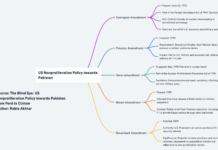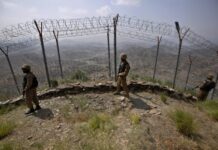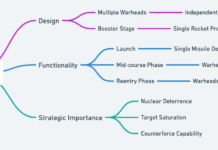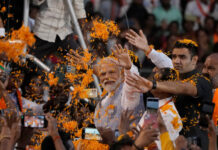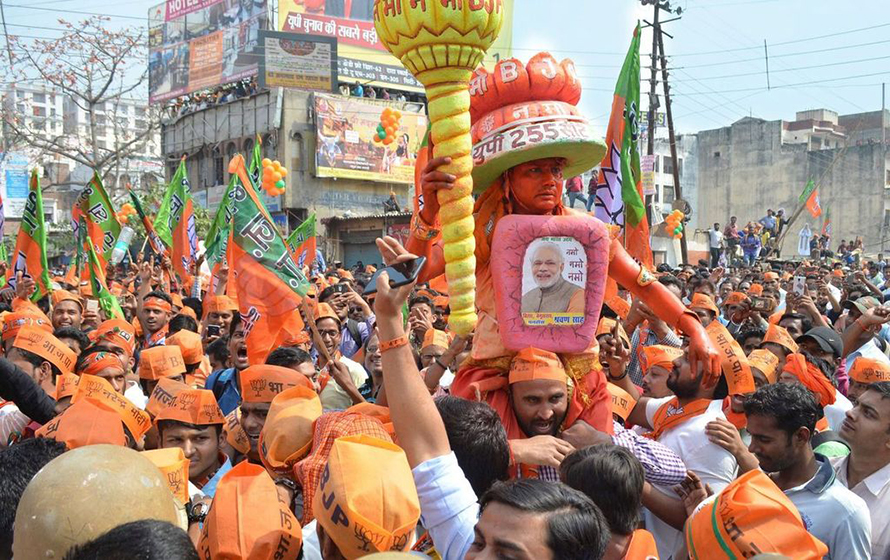Rehan Rasheed
In today’s complex global landscape, we confront multifaceted challenges of human security, strengthening democracies, averting conflicts, and countering terrorism. These challenges underscore our deepening interdependence and the imperative of attaining enduring equity. Since 2014, with the ascent of the Bharatiya Janata Party (BJP) to power in India, a perceptible shift has reshaped that country’s approach to these challenges. This transformation is characterized by a more centralized and authoritarian stance, driven by a potent emotional force rooted in “Hindutva.”
The Hindutva ideology has significantly influenced India’s perception, people, and democratic principles, prominently displaying a dualistic and chauvinistic dimension that prioritizes majority rule. It is important to note that the said ideology differs from Hinduism, focusing more on a national-cultural project than a religious one. Those who do not adhere to the Hindutva ideology are seen as traitors to the nation. Moreover, this ideology is closely aligned with majoritarian-populist politics, leading to a decline in democracy and open discourse within the Indian polity and society.
BJP governs India by exploiting the emotions of the majority community. BJP’s national identity program is based on the belief that Hindus are the rightful owners of India, and that all other groups are second-class citizens. This ideology is deeply popular with the Hindu majority, leading to a rise in sentiment-driven majoritarianism and a decline in democracy in India. This program is being enforced vigorously by the Rashtriya Swayamsevak Sangh (RSS).
Furthermore, Hindu nationalists advocate for the expansion of India’s borders to encompass neighboring nations. More menacingly, overseas Indian communities, among the world’s largest diaspora groups, are increasingly rallying behind Hindutva, exerting substantial influence despite their inability to vote in India. The ascent of Narendra Modi to power owes much to the tireless efforts of his international supporters, who do not have to endure under his regime but actively contribute to the rise of a more authoritarian India. However, these actions go beyond interest-group politics and have led to alarming incidents targeting critics of Hindutva worldwide.
Currently, tensions are escalating between India and Canada following Canadian Prime Minister Justin Trudeau’s public accusations that agents of the Indian government orchestrated the assassination of prominent Sikh leader and Canadian citizen Hardeep Singh Nijjar, outside a Sikh temple in British Columbia, Canada. Nijjar had been designated as a terrorist by the BJP government, led by Prime Minister Narendra Modi, who has long been accused of targeting Sikh leaders, both domestically and internationally. Authoritarian regimes employ aggressive tactics like this to quell dissent, and therefore Nijjar’s killing potentially serves as a warning to all activists.
The concern here is India’s extension of minority groups’ persecution to foreign soil, highlighting the audacity of the Modi administration. There are already many in the diaspora who engage in activism and have faced various consequences, including being barred from entering India, having family members incarcerated in India, denied visas, and experiencing social media censorship. However, this time, the Indian government’s response, marked by non-cooperation in the investigation, is deeply concerning. New Delhi must cooperate in investigating this murder, which is evidently an act of transnational repression and state terrorism on Canadian soil. The prosecution and logical conclusion of the investigation remain the ultimate test of the Western countries and their espoused liberal and rules-based values.
Following the assassination of a prominent Canadian Sikh activist, the FBI issued warnings to Sikh activists in California, conveying urgent threats to their lives. There are numerous recent examples where Hindutva-related groups have been accused of undermining academic freedoms on American university campuses by systematically targeting scholars whose perspectives on India differ from those espoused by Hindutva advocates. These egregious incidents shed light on how the Hindu Right has strategically integrated Hindutva into the very fabric of Hindu identity politics, representing a significant and unsettling paradigm shift. Moreover, this shift manifests as a more insidious, far-right variant that adeptly exploits both transnational cultural politics and the frameworks of U.S. social justice. Dheepa Sundaram highlights, in her research, that Hindutva extremists in the U.S. strategically exploit the racialization of Hindus. They do this by manipulating anti-racist and decolonial discourse to justify their own supremacist and discriminatory policies and practices.
As the influence of Hindutva continues to expand, concerns about its detrimental global impact and potential to shape politics in other countries are increasing. While its global influence is presently witnessing a gradual rise, these developments foreshadow a troubling future. In recent years, there has been a troubling escalation of intercommunal tensions and violence across various countries due to the influence of the Hindutva ideology and its supporters within the diaspora. For instance, in the UK, Indian political activists linked to the BJP are suspected of having incited confrontations between British Hindus and Muslims during riots in Leicester. These activists allegedly used closed WhatsApp groups to encourage protests.
Australia has witnessed violence against Sikhs, leading to arrests and deportations of the involved individuals. Additionally, efforts to silence academics critical of Hindutva have increased, with Indian authorities in Australia accused of interfering with research and attempting to censor studies that portray an unflattering image of India. In New Zealand, concerns raised by a Hindu professor about the rise of Hindu nationalism were met with derision from the New Zealand Hindu Council. The professor faced severe abuse from Hindutva extremists, including threats of violence. These incidents abroad are indicative of the global reach of the Hindutva ideology and its influence on diaspora communities, resulting in ethnic tensions and violence in various countries.
History serves as a stark reminder that appeasing aggressive regimes is a dangerous gamble, and that radical ideologies must be dealt with at the earliest opportunity. The lessons of the 1930s, when Western democracies appeased Nazi Germany under Adolf Hitler’s leadership, are clear. Marzia Casolari’s book “In the Shadow of the Swastika,” unveils connections between Hindutva extremist ideology, Italian Fascism, and Nazism, underlining the urgent need to address this contemporary issue.
Western appeasement of Modi’s Hindutva-driven regime, positioned as a counterweight to China, is a dangerous proposition that risks unleashing a wave of violence and repression, both domestically and internationally. The West must refrain from nurturing a Frankenstein’s monster by accommodating Modi’s mindset. BJP’s Hindutva ideology already poses a threat to regional stability and fosters human rights abuses and violations of international law on a global scale. The Western world must not turn a blind eye to the human rights abuses and democratic backsliding in India. Such a course of action would not only be morally wrong but also strategically unwise. It is imperative that the Western world takes a resolute stand against the Hindutva ideology and its potential repercussions. Failing to do so could ultimately lead to a more perilous and unstable world.
Dr. Muhammad Rehan Rasheed Tanoli teaches Strategic Communications at Riphah International University.



